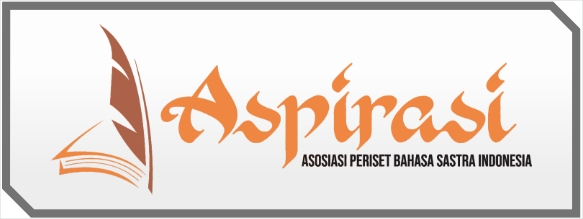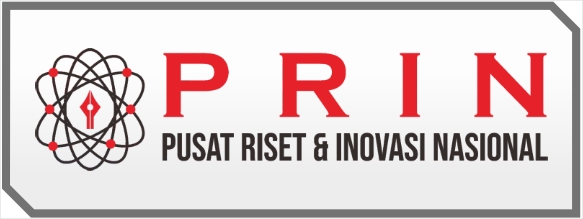ANALISIS KREATIVITAS MUSIKALISASI PUISI MELALUI MODEL COOPERATIVE LEARNING OLEH SISWA KELAS XI DI SMA NEGERI 1 DARUL HASANAH
DOI:
https://doi.org/10.55606/tuwahpande.v1i1.20Keywords:
creativity, cooperative learning model, poetry musicalizationAbstract
The purpose of this study was to describe the results of poetry musical creativity through the STAD (Student Team Achievement Divisions) cooperative learning model at SMA Negeri 1 Darul Hasanah. The method used is descriptive method taken from the type of qualitative research. The population in this study was the entire class XI totaling 35 students, while the sample in this study was class XI IPS which amounted to 10 students at SMA Negeri 1 Darul Hasanah. Data collection techniques include primary data consisting of performance, interviews, and observations, while secondary data is only documentation. The data analysis technique uses the arithmetic average formula to calculate the results of the performance and uses an assessment rubric, while the observation uses the percentage formula. The results of the research found in the field that the application of the cooperative learning model can provide quite good cooperation results even though some students are less willing to follow the directions of the teacher so that the results of their work are classified as poor. The results of the poetry musicalization which started with the preparations made by the students were good by preparing chord accompaniment instruments such as guitar and percussion including: two buckets and one aqua bottle filled with sand. Then the preparation of poetry readers is read by two people in turn and has prepared four singers to bring up the musicalization of their poetry which is sung in certain parts. The incubation process or the designing process is good because they have compiled the poem in advance along with the selection of the right song according to the title of the poem and the guitar music accompaniment is good, but the percussion pattern is still lacking but is covered by the ability of singers, poetry readers, and guitar players who are good at it. good. The process of special illumination for percussion is still lacking because their practice is not too serious so that the results shown from the journey of musical poetry are not good. However, the vocal players, both poetry readers and singers, still maintain their tune or pitch well so that they are slightly covered from mistakes made by percussionists. The verification stage that has been described previously can be concluded that the performance of the poetry musical has a poor tempo while the guitar accompaniment is quite good, but the vocals are good in conveying the interpretation so that holistically the work is quite good for a beginner.
References
Anwar, Syaifuddin. (2012). Metode Penelitian. Yogyakarta: Pustaka Pelajar.
Arifin, Zainal. (2012). Evaluasi Pembelajaran Prinsip Teknik Prosedur. Bandung: PT Remaja Rosda Karya.
Arikunto, S. (2013). Prosedur Penelitian: Suatu Pendekatan Praktik. Jakarta: Rineka Cipta.
Asmawati, Luluk. (2014). Perencanaan Pembelajaran PAUD. Bandung: PT. Remaja Rosdakarya.
Aziz, Fatkhul. (2013). Pengembangan Media Musikalisasi Puisi Sebagai Uoaya Peningkatan Kemamouan Mengapresiasi Puisi Untuk Siswa kelas IX SMP. Skripsi. Semarang: Fakultas Bahasa dan Seni Universitas Negeri Semarang.
Bahrissalim dan Haris, Abdul. (2011). Modul Strategi Dan Model-Model PAIKEM. Direktorat Pendidikan Agama Islam: Direktorat Agama Republik Indonesia.
Basadur, M., & Gelade, G. (2014). Creative problem-solving process styles, cognitive work demands, and organizational adaptability. The Journal of Applied Behavioral Science, 50 (1), 80-115.
Chyuan, Chin Tan dan Nikki S. Rickard. (2012). The Music USE (MUSE) Questionnaire: An Instrument to Measure Engagement in Music. Music Perception: An Interdisciplinary Journal, Vol. 29, No. 4.
Dadvar, Rahmatollah Mohammadrezaii & Fathabadi, Maryam Habibi. (2012). The Relationship between Emotional Intelligence and Creativity of Female High School Students in Baft City. Journal of Basic and Applied Scientific Research. Vol 2 (4).
Danardana, Sri Agus. (2013). Pelangi Sastra Ulasan dan Model-model Apresiasi. Pekanbaru: Palagan Pers.
Eisenberg, Jacob dan Thompson, Forde William. (2011). The Effects of Competition on Improvisers’ Motivation, Stress, and Creative Performance. Journal. Vol 23 (2).
Fakhriyani, Vidya Diana. (2016). Pengembangan Kreativitas Anak Usia Dini. Jurnal. Vol 4 (2).
Fatmawiyati, Jati. (2018). Telaah Kreativitas. Artikel, online. https://www.researchgate.net/profile/Jati-Fatmawiyati/publication/328217424_TELAAH_KREATIVITAS/links/5bbf3ec345851572315f4244/TELAAH-KREATIVITAS.pdf, diakses tanggal 8 April 2021.
Fitriyani, Aulia. (2016). Perancangan Aplikasi Mobile Edukatif ‘Belajar Chord Gitar Untuk Pemula’ Berbasis Android. Skripsi. Jurusan Teknik Elektro Fakultas Teknik Universitas Negeri Semarang.
Harianto, Suyuno. (2011). Belajar dan pembelajaran. Bandung: PT Remaja Rosda Karya.
Hosnan, M. (2014). Pendekatan Saintifik Dan Kontekstual Dalam Pembelajaran Abad 21. Kunci sukses implementasi kurikulum 2013. Bogor: Ghalia Indonesia.
Irawan, Dicky. (2015). Kreativitas Aransemen Musik Pada Lagu Daerah Aceh Melalui Project Based learning. Tesis. Bandung: Universitas Pendidikan Indonesia.
Khoiriyah, Niswati dan Sinaga, Syah Syahrul. (2017). Pemanfaatan Pemutaran Musik Terhadap Psikologi Pasien Pada Klinik Ellena Skin Care Di Kota Surakarta. Jurnal Seni Musik, vol 6 (2).
Kholid, Dody, M. (2011). Komposisi musik 1. Bandung: Bintang WarliArtika.
Kim, M., Roh & Cho. (2016). Creativity of Gifted Student in an Integrated MathScience Instruction. Journal of Skill and Creativity, vol.19. 38-48
Kurniawan, Heru dan Sutardi. (2012). Penulisan Sastra Kreatif. Yogyakarta: Graha Ilmu.
Miles, M.B, Huberman, A.M, dan Saldana, J. (2014). Qualitative Data Analysis, A Methods Sourcebook, Edition 3. USA: Sage Publications. Terjemahan Tjetjep Rohindi Rohidi, UI-Press.
Moleong, J Lexy. (2014). Metode Penelitian Kualitatif. Bandung: Remaja Rosda Karya.
Munandar, S.C.U. (2012). Pengembangan Kreativitas Anak Berbakat. Jakarta: Rineka Cipta.
Nasir, Muhammad Khaerunnisa. (2018). Penerapan Media Musikalisasi Puisi Terhadap Peningkatan Kemampuan Mengapresiasi Puisi Siswa X MIPA 3 SMAN 87 Jakarta. Jurnal Pena Literasi, vol 1 (2).
Nasution. (2011). Metode Research Penelitian Ilmiah. Jakarta: PT Bumi Aksara.
Nazir, Moh. (2013). Metode Penelitian. Bogor: Ghalia Indonesia.
Ngalimun, dkk. (2013). Perkembangan dan Pengembangan Kreativitas. Yogyakarta: Aswaja Pressindo.
Purwowidodo, Agus. (2010). Model Pembelajaran Inovatif Berbasis Konstruktifisme. Tulungagung: STAIN Tulungagung Press.
Putri, Afifah Nur. (2017). Pengaruh Model Pembelajaran Kooperatif Tipe STAD (Student Teams Achievement Division) Terhadap Hasil Belajar IPS Peserta Didik Kelas V MIN 6 Bandar Lampung. Skripsi. Fakultas Tarbiyah dan Keguruan Institut Agama Islam Negeri (IAIN) Raden Intan Lampung.
Putri, Ayu Y Adha. (2016). Peningkatan Kemampuan Membaca Dan Menulis Puisi Dengan Metode Musikalisasi Berbantu Media Movie Maker Pada Siswa Kelas III-B Madrasah Ibtidaiyah Khodijah Malang. Skripsi. Malang: Jurusan Pendidikan Guru Madrasah Ibtidaiyah Fakultas Ilmu Tarbiyah Keguruan UIN Maulana Malik Ibrahim Malang.
Randles, Clint dan Ballantyne, Julie. (2016). Measuring Self-Perception of Creative identity: a cross-cultural comparison of The Creative identities of Pre-Service Music Teachers in The US and Australia. Journal Music Education. Vol 20 (2).
Riyanto, Yatim. (2012). Paradigma Baru Pembelajaran. Jilid I. Jakarta: Kencana
Rohani. (2021). Penerapan Model Jigsaw Pada Materi Organ Gerak Tubuh Manusia Untuk Meningkatkan Hasil Belajar Siswa Pada Mata Pelajaran IPA Kelas V SD Negeri Barieh. Skripsi. Banda Aceh: Universitas Iskandarmuda.
Rusman. (2014). Model-model Pembelajaran Mengembangkan Profesional Guru. Jilid V. Jakarta: Raja Grafindo Persada.
Saetre, Helge Jon. 2011. Teaching and learning music composition in primary school settings. Journal. Vol 13 (1).
Slavin, E Robert. (2012). Cooperatif Learning. Bandung: Nusa Media.
Sudarma, Momon. (2013). Mengembangkan Keterampilan Berpikir Kreatif. Jakarta: Rajawali Pers.
Sugiyono. (2015). Memahami Penelitian Kualitatif. Bandung: ALFABETA.
Suharyanto, Agung. (2017). Sejarah Lembaga Pendidikan Musik Klasik Non Formal Di Kota Medan. Jurnal Seni dan Budaya, vol 1 (1).
Sukarti. (2016). Pembelajaran Musikalisasi Puisi Melalui Model Pengajaran Langsung. Jurnal, vol 3 (1).
Sukerta, P. M. (2011). Metode Penyusunan Karya Musik (Sebuah Alternatif). Solo: ISI Press.
Suprijono, Agus. (2012). Cooperative Learning. Yogyakarta: Pustaka Belajar.
Taniredja, Tukiran et al. (2014). Model-model Pembelajaran Inovatif dan Efektif. Jilid V. Bandung: Alvabeta.
Trianto. (2011). Mendesain Model Pembelajaran Inovatif-Progresif. Jilid IV Jakarta: Kencana.
Uno, B Hamzah. (2012). Assessment Pembelajaran. Jakarta: PT Bumi Aksara.
Widoyoko, Eko Putro. (2014). Teknik Penyusunan Instrumen Penelitian. Yogyakarta: Pustaka Pelajar.















